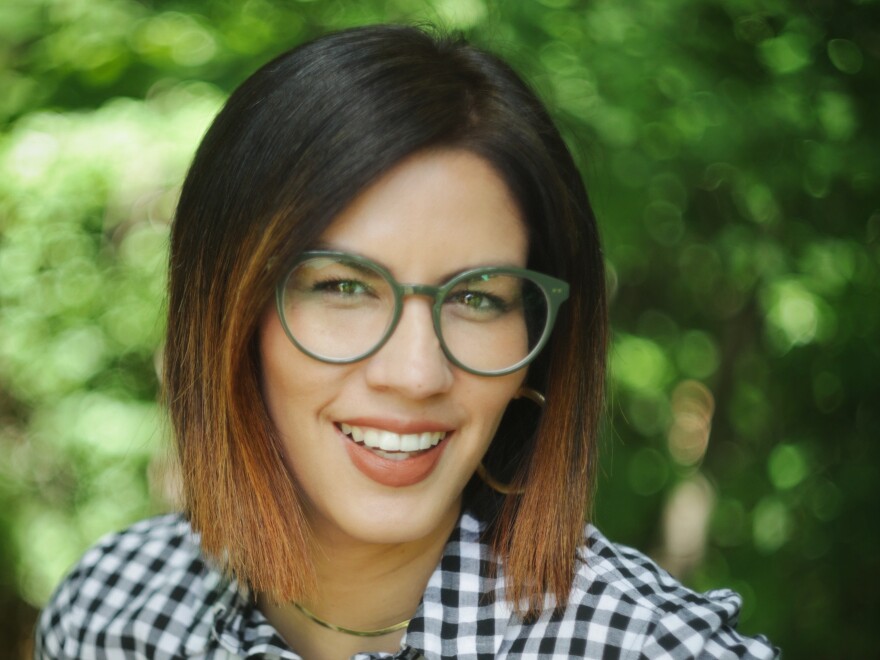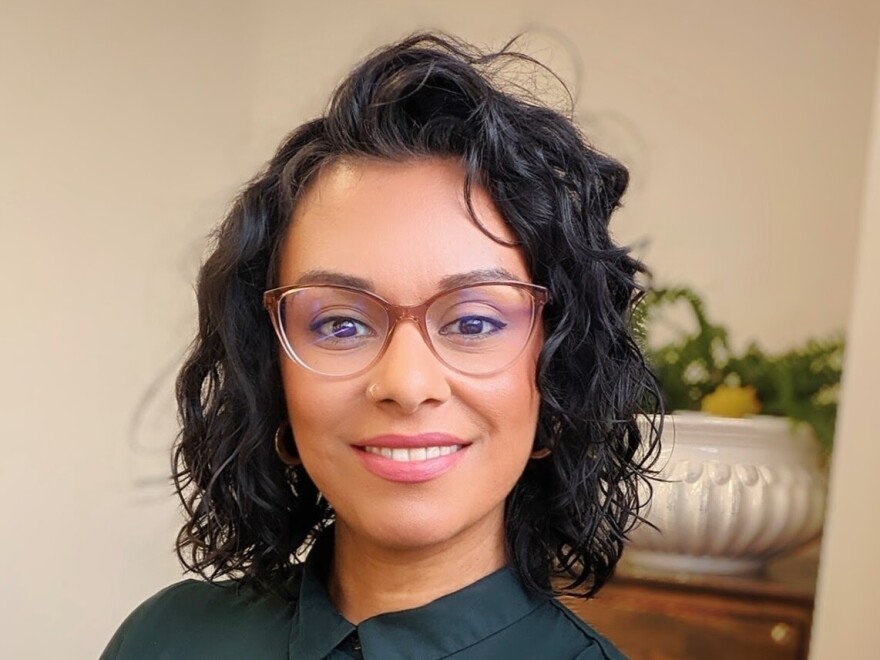For immigrants to the U.S., the Fourth of July brings mixed emotions. Typically marked with barbecues and fireworks, the holiday is a celebration of the country's independence in 1776.
This year, six immigrants reflect on what the day means to them, and how that meaning has evolved in recent years.
Alresch Jayawardena
Immigrated from Sri Lanka
Arrived in the U.S. on July 4, 1991
Initially, we celebrated our arrival here and we did the pageantry: the hotdogs, hamburgers. And even once I joined the military, it was so much more, post-9/11. Of course, as the decades wore on and I spent more time overseas in the Middle East, it made me change my viewpoint. And now it's more of a day to remember how I got here.
I don't know if I can really celebrate at the moment. Because over the last couple of years, the flag, it wasn't flown in, like, a friendly sort of way. It was almost like a threat. You know, you have to be a patriot waving the flag to be American. The fourth, I think it's a day of reckoning for a lot of people now.
Kristel Acevedo
Immigrated from Nicaragua
Arrived in the U.S. in 1985

I remember distinctly one 4th of July where I started asking everyone, 'Oh, what do you think makes America great?' Because it was during the time of our country where there was a lot of turbulence and there was unfortunately a lot of negative rhetoric in the media about immigrants. And I honestly was not feeling very proud to be an American at that point.
And then I asked my mother in law, who herself immigrated from Colombia. I asked her, 'Well what do you think makes America great?' And she said, 'I think it's the immigrants.'
And that response really impacted me. Because I started consciously realizing the many contributions that immigrants make to this country and that we bring so much flavor and uniqueness and diversity to this country. And it just made me feel proud again to be not only an immigrant but an American.
Sometimes, I just want to rest on the 4th of July. I just wanna have the barbecue and go to the beach and hang out with friends. But there's always something in the back of my mind that says 'Well, not everyone feels like this.' And so I have to give myself grace to celebrate and to rest from advocacy and all of that. But not totally forget about it. It really is such a balance.
Becky Diaz
Immigrated from Honduras
Arrived in the U.S. in 1989

In the past, I would say it was more passive. Just like, fun but not a big deal. Just an excuse for a barbecue or a cookout.
In recent years, it's felt almost, like, dangerous. It just feels like things that shouldn't have a negative meaning now have taken on negative meaning. Like nationalism, patriotism, the flag, the red, white and blue. They just have a different meaning now. There was just such a shift in what it meant to love America. Even the demand for loving America was different.
We're celebrating freedom from some sort of tyrannical government as we descend into a theocracy. How do I celebrate freedom with an open heart when we're not all free?
And I think that's what people don't realize. That when the criticism is there, it's not from a place of like, 'I hate this country' or 'screw this country.' But it's from a place of disappointment. Because this country is family.
Nigel Gombakomba
Immigrated from Zimbabwe
Arrived in the U.S. in 2002

Over the years, the 4th of July holiday brings me to space where I think about, where are we going, as far as liberty and freedom and independence as the original goal of the founders of the nation? Are we living up to those ideals? Are people really free?
The thing that consoles me is that when you look at the history of the United States, there's always been a struggle to get all these rights and equality. So looking at how people actually practice democracy and fight for their rights and everything, there's light at the end of the tunnel. And I think that's what makes the nation one of the greatest nations in the world.
What I hope is that there will be some sort of reconciliation within society to come and accept what historically has happened. I think that's probably part of the challenge is understanding and accepting the history so that people can celebrate.
Salonie Rego
Immigrated from Bangalore, India
Arrived in the U.S. in 2014
The 4th of July doesn't hold any personal significance to me. You know, it's like any other day. Back in 1776, the whole idea of the Declaration of Independence, as far as I understand it, was that we were breaking away from an old way of life where we didn't really have self-determination. And now, all of these decades later, it seems that we've moved farther away from being able to have self-determination, where our lives are restricted ... in terms of reproductive rights, in terms of who can and cannot vote. For me, the 4th of July does not represent necessarily something positive to me, given all of this. It just represents that we've gone farther backward in time.
Amir Sharifi
Immigrated from Iran
Arrived in the U.S. in 2009
My first 4th of July experience, we made a small trip to Chattanooga, Tennessee to visit some friends and we celebrated 4th of July by watching fireworks on the banks of Tennessee River. And it was splendid and beautiful. At the time, my biggest dream was to become an American and celebrate the 4th of July with my fellow Americans. And that became reality last year when I became a naturalized American citizen with my wife. And then a little bit after that, my daughter was born. So this year marks her first 4th of July. But this year our celebration won't be a typical one.
I am heartbroken for families in Uvalde, Texas who lost their children and loved ones. But most importantly, I am sad and disappointed in the recent rulings of the Supreme Court overturning Roe v Wade, which basically took away the most basic rights and freedoms from half of the population, including my wife and my daughter. So this year, we won't be lighting fireworks. We decided that we're going to take a long walk and contemplate. We are going to talk about what we gained, what we have, and what we've just recently lost.
Copyright 2023 NPR. To see more, visit https://www.npr.org.


